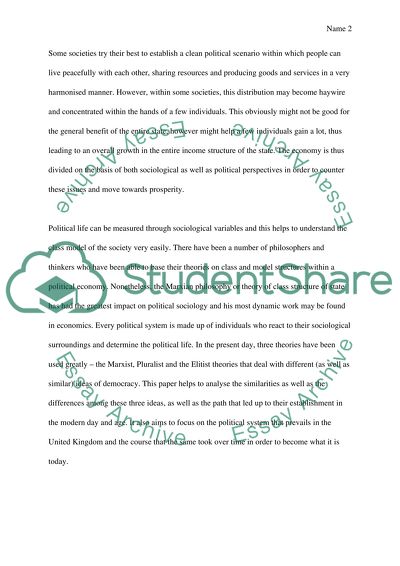Cite this document
(“Political Theories Essay Example | Topics and Well Written Essays - 1750 words”, n.d.)
Political Theories Essay Example | Topics and Well Written Essays - 1750 words. Retrieved from https://studentshare.org/history/1441041-compare-and-contrast-marxist-pluralist-and-elitist
Political Theories Essay Example | Topics and Well Written Essays - 1750 words. Retrieved from https://studentshare.org/history/1441041-compare-and-contrast-marxist-pluralist-and-elitist
(Political Theories Essay Example | Topics and Well Written Essays - 1750 Words)
Political Theories Essay Example | Topics and Well Written Essays - 1750 Words. https://studentshare.org/history/1441041-compare-and-contrast-marxist-pluralist-and-elitist.
Political Theories Essay Example | Topics and Well Written Essays - 1750 Words. https://studentshare.org/history/1441041-compare-and-contrast-marxist-pluralist-and-elitist.
“Political Theories Essay Example | Topics and Well Written Essays - 1750 Words”, n.d. https://studentshare.org/history/1441041-compare-and-contrast-marxist-pluralist-and-elitist.


